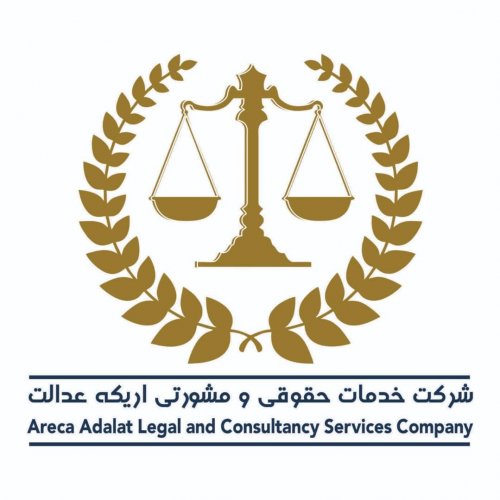Best Divorce & Separation Lawyers in Afghanistan
Share your needs with us, get contacted by law firms.
Free. Takes 2 min.
Free Guide to Hiring a Family Lawyer
Or refine your search by selecting a city:
List of the best lawyers in Afghanistan
About Divorce & Separation Law in Afghanistan
Divorce and separation in Afghanistan are primarily governed by Islamic law, also known as Sharia law, which influences both civil and legal aspects of marital dissolution. In Afghanistan, marriage and divorce proceedings occur within a religious framework, with distinct roles for gender defined by traditional interpretations of Islamic teachings. The legal system requires formal procedures for divorce, which are often complex and may involve mediation through family courts as well as tribal or community elders.
Why You May Need a Lawyer
Seeking legal assistance in matters of divorce and separation in Afghanistan is crucial due to the legal complexities and societal norms involved. Here are common situations where legal help might be necessary:
- Understanding Legal Rights: Due to the nuances of Afghan family law, understanding individual rights can be challenging without professional guidance.
- Mediation and Negotiation: Lawyers can act as mediators in family disputes, helping to negotiate terms of separation.
- Property and Financial Settlements: Ensuring fair division of assets and resolving financial matters.
- Child Custody and Support: Legal representatives can advocate for the best interests of children regarding custody and support arrangements.
- Protection in Domestic Violence Cases: Lawyers provide necessary support and legal protection in cases involving domestic violence.
Local Laws Overview
In Afghanistan, divorce laws are deeply rooted in Hanafi Islamic jurisprudence:
- Types of Divorce: Divorce can be initiated by the husband (Talaq) or by the wife (Khula) under specific circumstances, including undue hardship.
- Talaq: The husband must pronounce divorce clearly and explicitly. It is considered effective in defining the separation.
- Khula: A wife may seek divorce with mutual consent, typically by repaying her mahr (dower).
- Iddat Period: Following divorce, a woman must observe a waiting period called iddat, lasting approximately three months, during which remarriage is prohibited.
- Child Custody: Custody determinations usually prioritize the mother's role, but the father has a responsibility for financial support.
Frequently Asked Questions
What are the grounds for divorce in Afghanistan?
Grounds for divorce include mutual consent, undue hardship, irreconcilable differences, and failure to provide financial support.
How long does a divorce process take?
The duration varies depending on the complexity of the case and the parties’ amicability, typically ranging from a few months to a year.
Can women initiate divorce proceedings?
Yes, women can initiate divorce mainly through Khula, with either mutual consent or legal justification provided.
Is court approval necessary for a divorce?
Yes, divorce requires formal court registration to ensure it is legally recognized.
What financial arrangements need to be considered during a divorce?
Financial arrangements include alimony, the division of marital property, and child support, which are determined based on prevailing laws and mutual agreements.
How is child custody decided?
Custody is usually determined by the child’s best interests, considering factors like age and the ability of each parent to care for the child.
What rights do I have if I am a victim of domestic violence?
Victims are entitled to seek protection orders and may file criminal charges while pursuing divorce and custody arrangements.
Do traditional jirgas handle divorce cases?
While some communities may use tribal or local jirgas, legal divorces must be processed through official court systems to gain legal recognition.
Is it necessary to have a witness to pronounce Talaq?
Yes, having witnesses is often recommended to prevent disputes, though not strictly mandatory under Hanafi jurisprudence.
What should I do if my spouse refuses to grant a divorce?
Legal recourse is available through family courts, where a lawyer can help present your case and obtain a judicially-granted divorce.
Additional Resources
Consider the following resources for more support on divorce and separation in Afghanistan:
- Ministry of Justice: Provides legal information and services related to family law.
- Human Rights Organizations: Offer resources and advocacy for women's rights and domestic violence survivors.
- Local Bar Associations: Can help connect you with qualified family law practitioners.
- Legal Aid Providers: Organizations offering free or low-cost legal services to those unable to afford private counsel.
Next Steps
If you require legal assistance with divorce and separation in Afghanistan, consider the following steps:
- Consult a family lawyer who has expertise in Afghan and Islamic family law to understand your rights and obligations.
- Collect all necessary documentation, such as marriage certificates, financial records, and any relevant correspondence.
- Prepare for possible mediation or court appearances by clearly listing your objectives and concerns.
- Utilize additional resources or legal aid services for guidance and support throughout the process.
Lawzana helps you find the best lawyers and law firms in Afghanistan through a curated and pre-screened list of qualified legal professionals. Our platform offers rankings and detailed profiles of attorneys and law firms, allowing you to compare based on practice areas, including Divorce & Separation, experience, and client feedback.
Each profile includes a description of the firm's areas of practice, client reviews, team members and partners, year of establishment, spoken languages, office locations, contact information, social media presence, and any published articles or resources. Most firms on our platform speak English and are experienced in both local and international legal matters.
Get a quote from top-rated law firms in Afghanistan — quickly, securely, and without unnecessary hassle.
Disclaimer:
The information provided on this page is for general informational purposes only and does not constitute legal advice. While we strive to ensure the accuracy and relevance of the content, legal information may change over time, and interpretations of the law can vary. You should always consult with a qualified legal professional for advice specific to your situation.
We disclaim all liability for actions taken or not taken based on the content of this page. If you believe any information is incorrect or outdated, please contact us, and we will review and update it where appropriate.
Browse divorce & separation law firms by city in Afghanistan
Refine your search by selecting a city.









